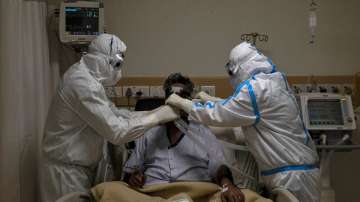The drug tocilizumab, which is used in the treatment of various forms of arthritis, can greatly shorten the time on ventilation and hospital stays for patients with severe COVID-19, according to a Swedish study. The study, published in The Journal of Internal Medicine, included 87 patients with severe COVID-19 in intensive care at Karolinska University Hospital in Sweden.
"The report is, as far as we know, the first from Sweden to present results of a specific drug intervention for severe cases of COVID-19," said Piotr Nowak from Karolinska University Hospital.
In the study, 29 of the patients received tocilizumab, a drug approved for the treatment of rheumatoid arthritis that blocks the so-called IL-6 receptor to prevent viral hyperinflammation or cytokine storm.
Hyperinflammation triggered by the new coronavirus is central to the pathological process and causes high levels of the cytokine IL-6, which are associated with a more severe COVID-19 disease, the researchers said.
The differences between the treatment and control groups were significant, they said.
The study found that patients who received tocilizumab were hospitalised for a much shorter length of time, including time spent on a ventilator, than those who received the standard treatment.
The time spent on ventilation was reduced by ten days, the time spent in intensive care by eight days, and the total hospital stay by ten days, according to the researchers.
The treatment was not associated with serious adverse events, they said.
"So it seems we can help severely ill COVID-19 patients by affecting inflammation in the body with this treatment," said Nowak.
"The results now need to be corroborated by a larger study that randomly assigns patients to either tocilizumab or other treatment," he said.
The study is a so-called retrospective cohort study, which involves working back from particular outcomes to determine possible causal factors, the researchers said.
In this case, such a factor was who had received drug treatment and who had not, they said.
The drawback is that the results are less reliable since it is harder to control for different influencing factors, they said.
